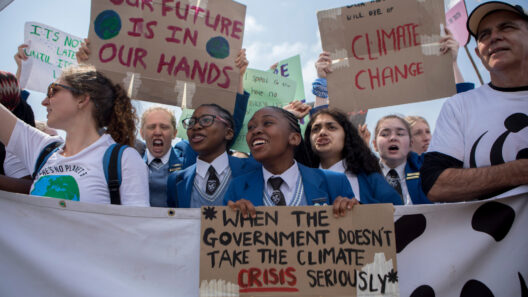In the intricate tapestry of our planet’s climatic ballet, fossil fuels emerge as a potent dancer with both allure and peril. The energy debate surrounding these resources unveils a complex narrative, one steeped in the interconnectedness of human progress and environmental integrity. As we delve into this pressing issue, it becomes imperative to navigate the convoluted landscape of fossil fuels, their contributions to global warming, and the requisite pivot towards sustainable alternatives.
Fossil fuels—coal, oil, and natural gas—are the lifeblood of contemporary civilization. They are omnipresent, fueling industries, transportation, and even our homes. However, their metamorphosis from coveted resources to potent agents of climate change beckons a deeper investigation. The combustion of these fuels unleashes a torrent of carbon dioxide (CO₂) and other greenhouse gases (GHGs) into the atmosphere, engendering a greenhouse effect akin to wrapping the planet in an insulative blanket. This phenomenon exacerbates global warming, elevating temperatures and disrupting climatic equilibrium.
The origins of fossil fuels lie in ancient organic matter, entombed beneath layers of sediment for millions of years. We exhumed these relics to power the Industrial Revolution, a watershed moment that heralded unprecedented advancements. Yet, as we draw on this ancient energy, we inadvertently metamorphose our atmosphere into a cauldron of change—a drastic alteration resulting from human hands. The Intergovernmental Panel on Climate Change (IPCC) underscores that fossil fuels account for approximately 75% of global CO₂ emissions. Each ton we extract and burn is a thread pulled from our environmental tapestry, unraveling the fabric of ecological stability.
The appeal of fossil fuels is undeniable. They are infused in the machines that transport us, the electricity that enlivens our cities, and the heating that shelters us from winter’s chill. However, the simple convenience of fossil fuels comes at an exorbitant cost. The debate over their utility versus their environmental toll is akin to a steely-faced wager: will we gamble our planet’s future for short-term gains? The alarm bells are sounding, echoing through scientific communities and grassroots movements alike, urging a re-evaluation of our energy paradigm.
An often-cited metaphor likens our reliance on fossil fuels to an addiction; as with any dependency, the relief they provide is ephemeral, masking a far more insidious consequence. Scientists project that if current consumption patterns persist, the global temperature may rise by 1.5 degrees Celsius as early as 2030—a threshold identified as critical. Crossing this line ushers in a cascade of environmental challenges: melting ice caps, rising sea levels, and increasingly erratic weather patterns. The urgency to recalibrate our energy choices resonates more than ever.
Compounding the dilemma is the economic entrenchment of fossil fuels. Numerous nations derive substantial revenue from oil and gas industries, creating a precarious balance between economic stability and environmental responsibility. Shifting away from fossil fuels is not merely an environmental imperative; it necessitates a profound transformation of economic policies and energy structures. Innovative energy solutions—solar, wind, and geothermal—present a viable escape route from this self-imposed straitjacket. They represent a beckoning horizon of sustainable development.
The commodification of renewable energy technologies has also evolved dramatically. Once considered the purview of idealists and environmentalists, renewables are swiftly transitioning into the mainstream. The paradox of fossil fuels is encapsulated in their inherent volatility—their prices fluctuate rapidly, creating an almost unpredictable economic ecosystem. Renewables, on the other hand, are increasingly recognized for their potential to provide stable, reliable energy sources, with the added advantage of minimal environmental degradation.
The interdependence of economic growth and energy consumption lays bare our current trajectory. As developing nations strive to elevate living standards, the demand for energy surges. This scenario presents a pivotal opportunity: will these nations leap towards renewables, circumventing the carbon-heavy legacy of fossil fuels? Global cooperation and technological transfer will be crucial in averting a trajectory plagued by environmental catastrophe. The ramifications of our choices reverberate beyond borders, necessitating a concerted global effort.
Despite the myriad of opportunities that renewables present, the clamor for fossil fuels has not yet abated. Investments in fossil fuel infrastructure, such as pipelines and refineries, continue to receive governmental and political support, often overshadowing brighter alternatives. This is emblematic of the struggle between inertia and innovation. As climate activists persistently uncover the hidden costs associated with fossil fuel reliance—health disparities, environmental degradation—the call for accountability grows louder.
Transitioning to a fossil-free future is not an ailment-free panacea. Finite resources, along with geographical and technological disparities, complicate this ambitious endeavor. However, the clarion call for innovation underscores the potential for transformative change. Initiatives such as carbon capture and storage (CCS) and smart grid technologies are steps toward ameliorating the impacts of our fossil fuel dependency.
The present moment calls for reflection and decisive action. We are confronted with a dichotomy, poised between legacy methods that have served us and the burgeoning potential of sustainable energy. This lively debate underscores not just our environmental responsibilities but the economic and social fabrics that interlace our global community. Balancing progress with sustainability is an overarching theme, one that we must embrace in our quest to foster a climate-resilient future.
In conclusion, while fossil fuels have played a pivotal role in the ascent of modern society, their contributions to global warming are profound and alarming. The energy debate is not merely ideological; it is reflective of our values, priorities, and aspirations for the planet. Our trajectory forward must be defined by the wisdom of our choices and the courage to redefine our relationship with energy. The wicket of climate change awaits careful stewardship, beckoning us toward a path that reconciles human advancement with ecological sanctity.





